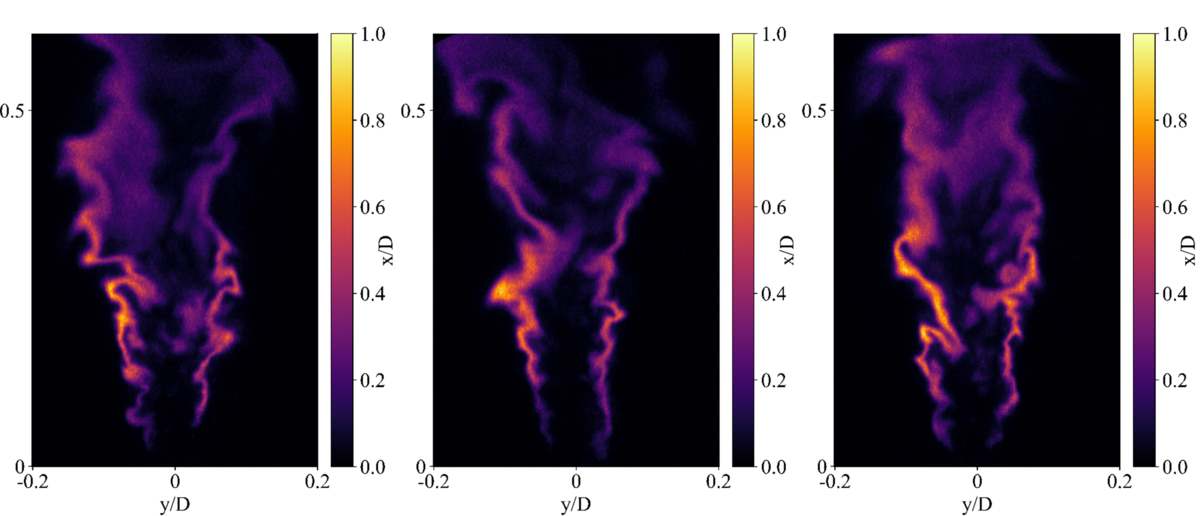

 ©
Institut für Technische Verbrennung
©
Institut für Technische Verbrennung
Turbulent flames can be found in many applications, including road, marine and aviation, as well as production processes in the chemical, metals and power industries. The use of turbulent flames can influence both efficiency and pollutant formation. In the context of the energy revolution, turbulent combustion will therefore remain indispensable for efficient, powerful and environmentally friendly mobility, power generation and industry. The different combustion characteristics of fuels and the complex interactions in the flame pose particular challenges.
The physical and chemical relationships between the processes in turbulent flames are studied at the ITV. In the past, experimental and numerical investigations have been carried out on turbulent premixed flames in the power range between 20 and 200 kW thermal power. In addition to laser spectroscopy, the flow field has also been recorded using Conditioned Particle Image Velocimetry (CPIV). The knowledge gained will help to further optimise and validate existing simulation models.
Contact Person
30823 Garbsen


